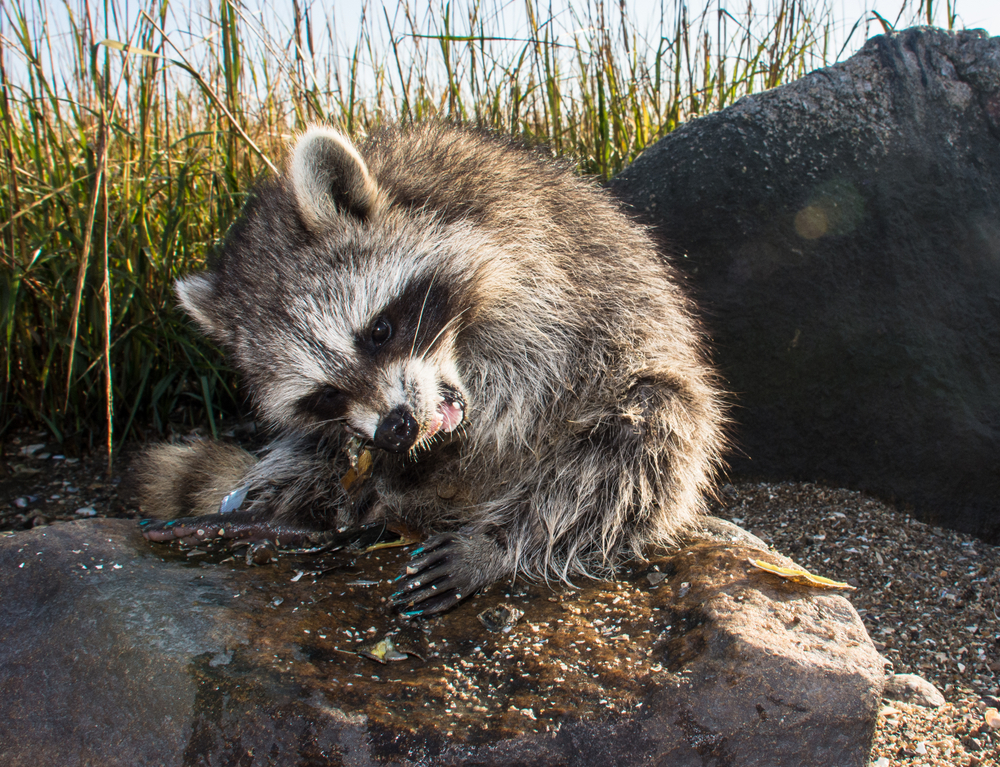 Raccoons have developed a reputation as a carrier for rabies in many areas, and not for no reason. In fact, some areas have raccoons classified as a “rabies vector species,” meaning they have a higher-than-average potential for carrying and transmitting rabies.
Raccoons have developed a reputation as a carrier for rabies in many areas, and not for no reason. In fact, some areas have raccoons classified as a “rabies vector species,” meaning they have a higher-than-average potential for carrying and transmitting rabies.
Though it is not as prevalent an issue as it has been in the past, rabies is typically fatal to animals and can be fatal to humans if not treated in a timely manner. Rabies is normally transmitted via bite, but infection is possible through contact with saliva, feces, or blood.
Signs that a raccoon is infected
It’s stumbling around
The animal appears to be having a difficult time standing or walking as if their hind legs are paralyzed. Look for the raccoon to possibly be walking in circles or pacing back and forth as well.
It appears dazed
Rabid raccoons often appear disoriented, slowed, or confused. A healthy raccoon is always doing something purposeful, like eating, sniffing the ground, or surveying their surroundings in an alert manner.
It’s barking loudly
Healthy raccoons make quiet chattering noises between one another, or loud noises during mating or when fighting. If you hear one making strange screeching or barking noises, steer clear.
It’s mouth is foaming
Perhaps the most widely-known symptom of a rabid raccoon is foaming at the mouth or excessive drooling. This is because rabies causes damage to the animal’s nervous system and affects their ability to swallow properly.
It acts aggressively
Most wild animals will run away from you if you approach them, and a sick raccoon may growl or even try to attack.
If you come across a potentially sick raccoon:
- Do not approach it for a closer look to determine if it is rabid or not
- Do not chase the raccoon
- Do not attempt to capture the animal on your own. Leave that up to a professional
If you’ve come across a potentially rabid raccoon on your property, let the experts here at Critter Control® of Dallas help. Our technicians are trained and equipped to safely handle any wildlife problems so that you and your family can stay out of harm’s way.





